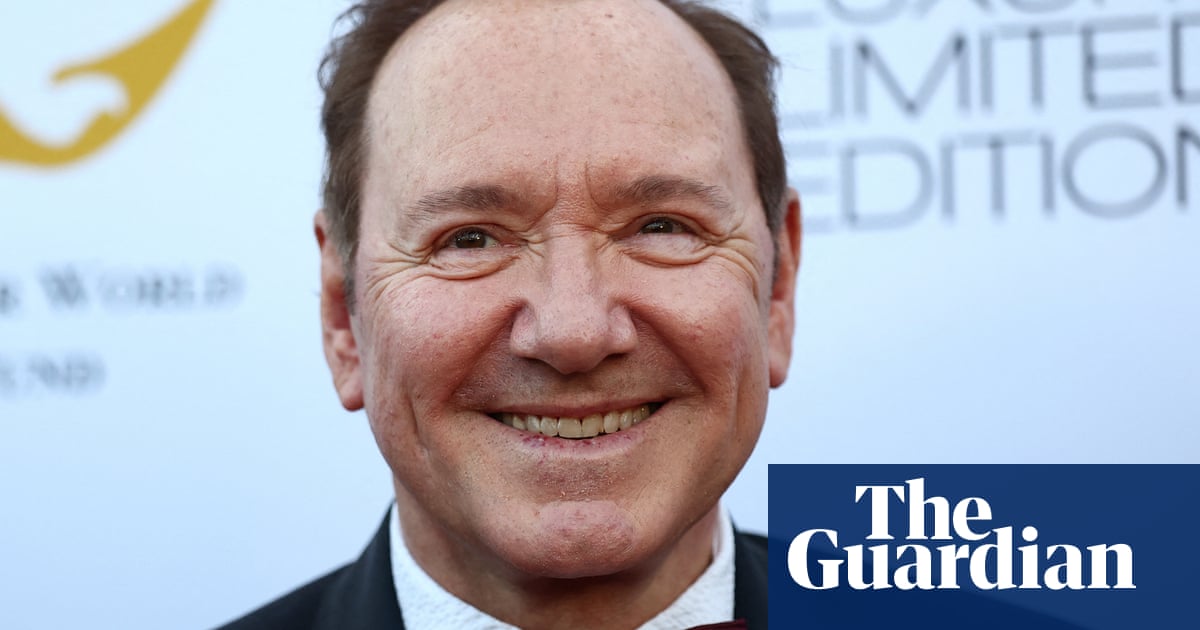Kevin Spacey’s Cannes comeback is a discreet, low-key affair. The promenade is home to a gaggle of evening sunbathers while the steps to the beach club contain neither fans nor protesters. It is what is known in the trade as a soft relaunch.
Spacey is guest of honour at the Better World Fund’s gala dinner, where he is receiving a lifetime achievement award for “excellence in film and television”. It marks a return to the limelight for the two-time Oscar-winner, whose career stalled after allegations of sexual assault and misconduct by more than 30 men. This is the actor’s first visit to Cannes since 2016, one year before the #MeToo movement began.
Inside the hotel beach club, the photographers jockey for position and complain of the party’s lack of celebrity wattage. The more enterprising guests hold up their phones with their names displayed. The others risk going entirely unrecognised. “There’s no guest list,” one photographer grumbles to his friend. “Who even are these people?”
Spacey’s gala dinner is a breakaway event, not officially sanctioned by theCannes film festival, although it takes place at the nearby Carlton hotel, the centrepiece berth for the event’s A-list guests. The Better World Fund is a charitable foundation set up by the American entrepreneur Ted Turner, with a focus on the arts and a mission to “build a more secure, prosperous world”.
One of its longstanding supporters is the Indian-American film-maker Mira Nair, the director of Salaam Bombay! and Monsoon Wedding. On arriving, Nair says that she only learned of Spacey’s invitation the day before. Asked if she is happy that the actor has been invited to the party, she says: “I can say that I’m happy that I’ve been invited to the party. I’m happy that people are here, being honoured.”
When Spacey belatedly appears on the red carpet, the photographers surge forward and knock over the cordon. Tables are upset and champagne glasses smashed. “Thank you for coming,” he says, maintaining a stiff rictus smile, before pausing for a brief word with a TV crew. The actor ignores all further questions and is quickly steered past the gathered reporters. His gaze is fixed like a limpet on the dinner tables inside.
Out on the prom, one lone demonstrator has now set up camp. Ramiro Magalhães is a Brazilian climate change activist who is in Cannes to protest against the destruction of the Amazon rainforest. He has a push-cart made up as a hospital stretcher, with the charred bough of a tree playing the role of the patient. Magalhães says he has never heard of Spacey. “I don’t know any actors,” he says. “Is he a good actor?”
Spacey, 65, is in Cannes for business as well as pleasure. He is starring in a low-budget independent thriller, The Awakening, that is being sold to foreign buyers inside the festival’s Marché du Film. The Awakening’s writer, producer and star, Matt Hookings, this week told reporters the actor’s attendance at the gala dinner was part of a “guerrilla marketing” campaign to promote the film. “If anyone speaks to him, he could say he’s in Cannes and receiving an award,” Hookings said. “But he’s also here with The Awakening, so the film gets plugged.”
Inside the beach club, the guests take their seats for the dinner. Spacey will be hoping that the gala signals a new dawn. But out on the beach the sun was going down.
